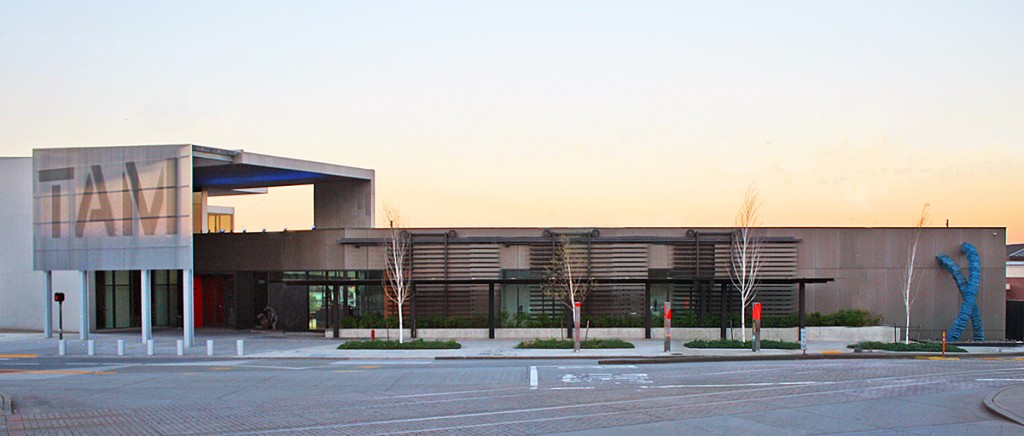Page 76 • (3,621 results in 0.052 seconds)
-
questioning our human experience (Post-human? Un-human? De-human, re-human, trans-human etc.) Rebecca: What would you say has been the most important thing you’ve learned from your PLU students this year? Patrick: One student discussed the US zombie not primarily in terms of the loss of rationality. Rather, he read the contemporary American zombie as a metaphor for the loss of empathy and ability to connect outside one’s own “tribe”. As a facilitator, my main observation was that many students experience
-

landscapes, as a backdrop for human interactions, and as a metaphor for love, longing, grief, joy, and other big human emotions,” shared Margaret Bullock, Curator of Collections and Special Exhibitions. He sought to live and work by the sea, often painting outdoors in the Norwegian landscape. Munch would likely have felt at home on Puget Sound. This exhibition honors Pacific Lutheran University’s 125th anniversary and Norwegian heritage. “The university reached out to TAM as a fellow cultural
-
categorization, taking my inspiration from some of the division’s leaders in their own introductions over the last 35 years.Intersecting Visions of Humanities In the very first issue of Prism, Dean Janet Rasmussen explained the publication’s title this way: The role of the humanities is, in some measure, to present and polish the prism, so that our vision may be both clear and wondrous. To study the humanities is to confront the very nature of being human as we explore expressions of the heart, mind and soul
-
High School Math will not be accepted as a substitute Ethics (4 semester hours) HIST 248: Innovation, Ethics, and Society PHIL 125: Ethics & the Good Life PHIL 128: Politics & the Good Society PHIL 229: Human Rights RELI 226: Christian Ethics Communication (4 semester hours) COMA 212: Public Speaking COMA 306: Persuasion ENGL 323: Writing in Professional and Public Settings ENGL 393: The English Language PPAP 301: The Book in Society PPAP 302: Publishing Procedures Close Reading (4 semester hours
-
5. The intrinsic value of the whole creationLutheran higher education follows Martin Luther’s own declaration that all of creation holds intrinsic value, from the majestic mountains to human communities to the tiniest living components of life. Some Christian traditions today may declare that spiritual matters are superior and good whereas the world is inferior and intrinsically bad. To these claims, Lutheran thought provides a resounding No! While there have been times when a bleak view of
-
Learning Outcomes GLST Major Learning Outcomes Global Studies majors will: Articulate the complexity of global issues and of solutions to global problems. Apply the approaches and methods of multiple disciplines to analyze specific global issues. Effectively communicate in written and oral form the complexity of a global issue or a specific solution to a global problem using approaches and methods from multiple disciplines. Demonstrate knowledge of translinguistic and transcultural perspectives
-

In their own words: Kinesiology students at PLU Posted by: mhines / July 20, 2023 July 20, 2023 We asked students Megan B. ‘23 and Peyton S. ‘23 to share their thoughts on what it’s like to be a kinesiology major at PLU. Here’s what they had to say. Wondering what kinesiology includes? Overall, it’s the study of human movement and the science behind physical activity. At PLU, our kinesiology major includes concentrations in exercise science, pre-physical therapy, and health & fitness education
-
PLU promotes the health, safety, and wellness of our community. Campus SafetyCampus safety promotes and sustains a safe environment and effectively responds to campus incidents. Campus Safety HealthThe Health Center offers a wide range of primary-care services, and all Health Center visits are offered at no charge. Health Center Rights and ResponsibilitiesEach student associated with PLU is expected to be familiar with and to follow all policies, rules and regulations. Rights and
-
) - Undergraduate Courses BIOL 111 : Biology and the Modern World - NW This course is intended to introduce students to the principles and concepts that pertain to all living organisms, with special emphasis on those topics typically encountered in everyday life, including human physiology and disease, environmental issues, and the fundamentals of genetics. Lecture and laboratory. Not intended for biology majors. (4) BIOL 116 : Introductory Ecology - NW A study of the interrelationships between organisms and
-
Leadership Excellence (2011), the Carnegie Corporation’s Academic Leadership Award (2011), and the Heinz Award (2012) for contributions to improving the “Human Condition.” More recently, he received the American Council on Education’s Lifetime Achievement Award (2018) and was named a recipient of the University of California, Berkeley’s Clark Kerr Award (2019). UMBC has been recognized as a model for inclusive excellence by such publications as U.S. News, which the past 10 years has recognized UMBC as a
Do you have any feedback for us? If so, feel free to use our Feedback Form.


